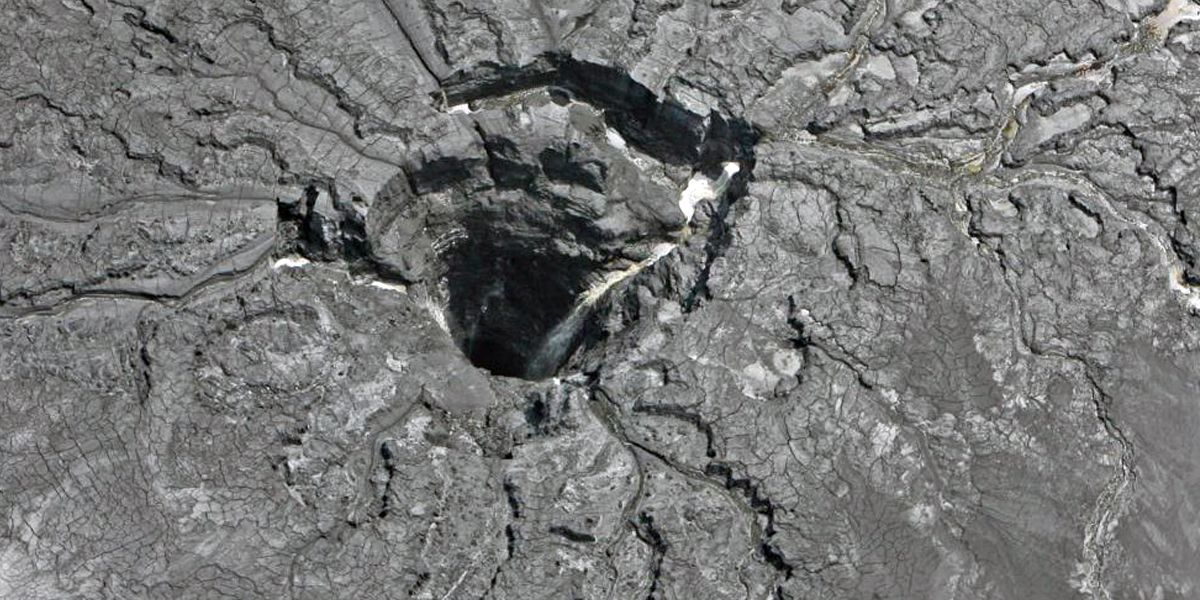
Massive Sinkhole in Florida Is Leaking Radioactive Water Into the Ground

[Click here for the latest news on this story.]
News broke late Thursday that a massive sinkhole below a phosphate strip mine 30 miles east of Tampa has been releasing radioactive waste into the Floridan aquifer for three weeks.
News reports indicate that Mosaic, the owner of the mine, and state officials have known about the problem for three weeks, but failed to notify the public. The sinkhole formed below a phosphogypsum stack, which is a pile of radioactive waste hundreds of feet tall produced by phosphate mining, and in this case may pose a serious threat to drinking water for millions of Floridians.
Florida fertilizer plant sinkhole leaks 215M gallons of radioactive water into aquifer https://t.co/HBWHE0Ymtu pic.twitter.com/9VYF1k7oIZ
— ABC News (@ABC) September 17, 2016
“Enough is enough. Florida must finally take a stand against this destructive, radioactive phosphate mining that is putting our health and environment at risk,” said Jaclyn Lopez, Florida director at the Center for Biological Diversity.
“Mosaic wants to mine an additional 50,000 acres of Florida’s beautiful, biodiverse lands, but this incident makes clear it can’t even handle the radioactive waste it currently generates. We must come together and demand that our counties, our state and our federal government reject further expansion of this dangerous industry.”
Radioactive phosphogypsum is produced during phosphate mining when sulfuric acid is applied to phosphoric ore, releasing naturally occurring uranium and radium. Besides leaving massive piles of radioactive waste, this process produces radon gas in the air, which is cancer causing.

Forty percent of the phosphate ore that’s mined in Florida is shipped overseas, but 100 percent of the radioactive phosphogypsum waste that’s generated remains in the United States, the majority of it in Florida, where it stays forever. That’s five tons of radioactive waste for every one ton of usable phosphate.
Phosphate mining creates 60-foot-deep to 80-foot-deep open pits thousands of acres wide. Florida is home to the world largest phosphate mine, and now Mosaic wants to strip mine an additional 52,000 acres in Manatee, Hardee and De Soto counties.
This is not the first time a sinkhole has opened up below a radioactive phosphogypsum stack, nor is it the first time Mosaic has had problems with handling its hazardous waste. In 2009 a sinkhole at the PCS White Springs facility released more than 90 million gallons of hazardous wastewaters into the Floridan aquifer. In October 2015 the U.S. Environmental Protection Agency and Mosaic settled a lawsuit regarding a series of alleged violations of how Mosaic handles and stores its hazardous waste, paying civil penalties to the feds and Florida.

 233k
233k  41k
41k  Subscribe
Subscribe 